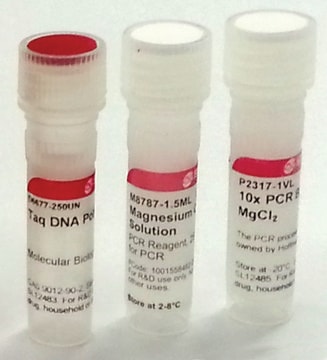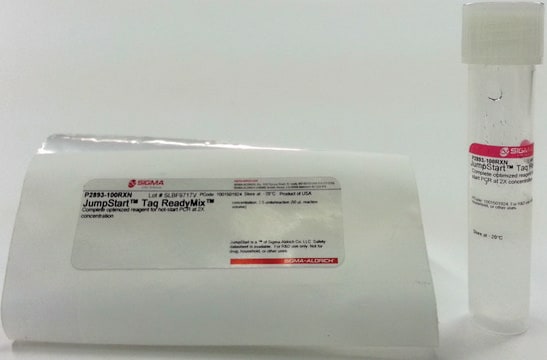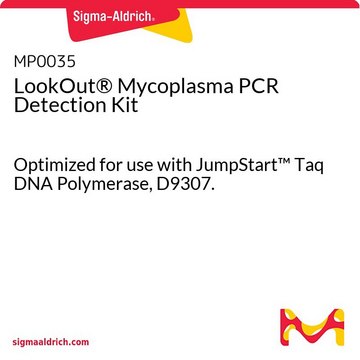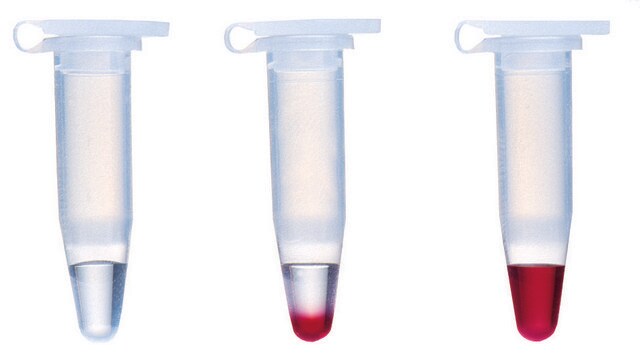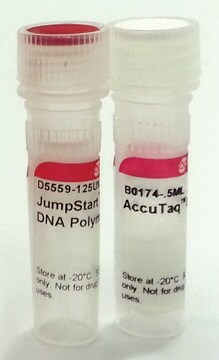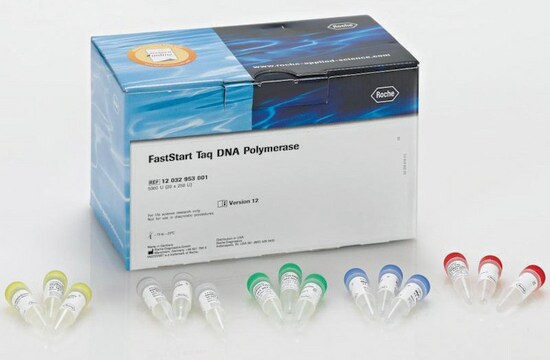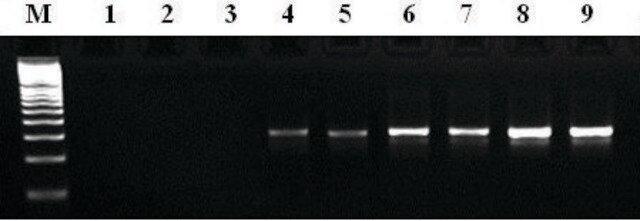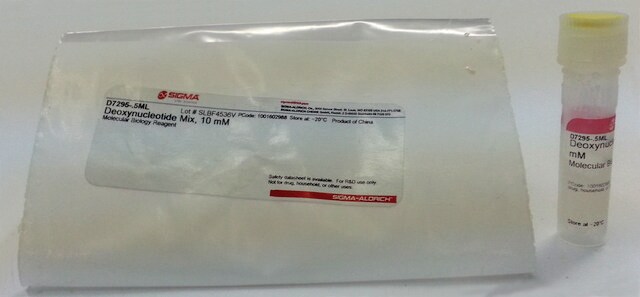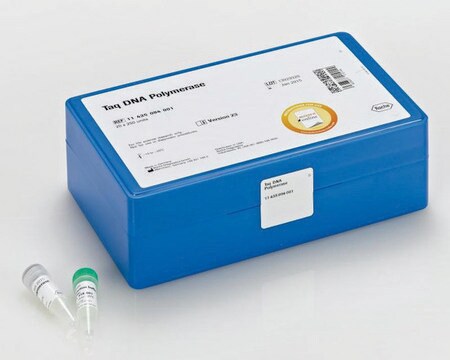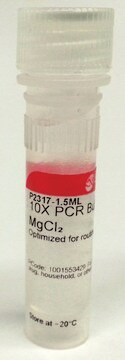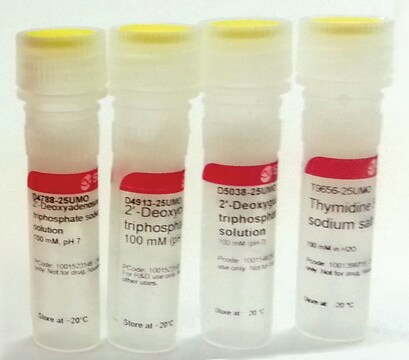추천 제품
일반 설명
애플리케이션
- In the PCR amplification of DNA isolated from herbarium specimens.
- In the PCR reaction mixture for randomly amplified polymorphic DNA polymerase chain reaction (RAPD PCR).
- To amplify and detect a point mutation in the EGFR exon 19 using specific cancer cell lines.
- In real-time quantitative PCR
- For PCR amplification of complex genomic or cDNA templates
- For the PCR amplification of very low-copy number targets
- For the PCR amplification of many thermal cycles (>35), and multiple primer pairs in the same reaction tube
- For PCR amplifications that require reduced non-specific amplification
- For multiplex PCR
- For reduction of primer dimers
특징 및 장점
- Reduces non-specific amplification
- Increases PCR specificity and yield
- Reduces set-up time concerns associated with manual or wax Hot Start methods
- Activation time of less than 1 minute
포장
기타 정보
단위 정의
법적 정보
Antibody licensed for in vitro research use under U.S. Patent No. 5,338,671 and 5,587,287, and corresponding patents in other countries.
관련 제품
Storage Class Code
10 - Combustible liquids
Flash Point (°F)
Not applicable
Flash Point (°C)
Not applicable
시험 성적서(COA)
제품의 로트/배치 번호를 입력하여 시험 성적서(COA)을 검색하십시오. 로트 및 배치 번호는 제품 라벨에 있는 ‘로트’ 또는 ‘배치’라는 용어 뒤에서 찾을 수 있습니다.
이미 열람한 고객
문서
Learn about the history of the polymerase chain reaction (PCR), from the basic principles that proceeded its discovery to the awarding of a Nobel Prize for Chemistry and more recent developments such as real-time PCR (qPCR) and digital PCR.
The purpose of Hot Start PCR is to inhibit the PCR reaction in order to reduce nonspecific amplification, prevent the formation of primer dimers, and increase product yields.
프로토콜
Hot Start Taq Polymerase protocol to reduce non-specific amplification, with MgCl2 Optimization
Protocol using antibody mediated hot start polymerase. Method has short activation period (<1min), and results in higher yields and more specificity over standard PCR methods.
When using hot start Taq DNA polymerase, the enzyme remains inactive until heated. Hot Start DNA polymerase control is achieved by chemical or antibody modification of the enzyme.
자사의 과학자팀은 생명 과학, 재료 과학, 화학 합성, 크로마토그래피, 분석 및 기타 많은 영역을 포함한 모든 과학 분야에 경험이 있습니다..
고객지원팀으로 연락바랍니다.
